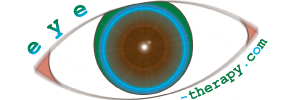
 | Worry looks around, sorry looks back, faith looks up. |
Eye Color and Why It Changes
Eye ColorEye color is based on the number and color of pigment granules (Melanin) in our eyes. These granules range in color from neutral to very dark brown. The darker the pigment, the darker the eyes. And fewer granules result in lighter eyes. Conversely, more granules result in darker eyes. Blue eyes are the result of a small number of granules with minimal pigment. Green or hazel (light brown or yellowish brown) eyes are the result of a moderate number of granules with moderately colored pigment. Brown eyes result from a large number of granules with high pigment levels. Why Does Eye Color Change With Age?Between 10% and 15% of the Caucasian population will have their eye color change as they age. (Other races have darker eyes which do not change much with age.) Why does this happen? There are different reasons. DiseaseOne reason our eyes can change color is due to disease. So if you notice your eyes changing color, it may be a good idea to visit your eye doctor for a check-up. Some diseases which can cause your eyes to change color are Horner's Syndrome, pigmentary glaucoma and Fuch's heterochromic iridocyclitis. Other Causes Eye Color ChangeIf your eyes check out fine, then the cause of the color change is probably due to age. Aging is the most common cause of a change in eye color, gradually, after reaching adolescence. Most will lighten with age, but hazel (light brown or yellowish brown) or blue can darken. A Caucasian baby's eyes, of course, can change color quite rapidly as the pigmentation of the eye changes, then settles in, giving the child its eye color. Less or More MelaninThe pigment melanin gives our hair, skin and eyes their color. It seems that with age, the amount of melanin in the iris can change, resulting in a change in the perceived color. This is also the cause of hair color change. A tow head (one with very light blond hair) usually does not remain so as he/she ages. The hair color becomes a darker blond. Similarly, carrot red hair may turn auburn or even brown as the person matures. Read more about melanin. Yellowing of the EyesAs we age, our eyes can yellow. The color we perceive our iris to be depends on a dark background. If our eyes yellow, the background is not as dark and the perceived color will change. Light SourceThe perceived color of our eyes can change depending on the light source. Yellow light, for example, may make our blue eyes seem green. Or the perceived color can change based on the color clothes we are wearing. Wearing green can make hazel eyes look greener.
|
|||||||
Home
Facts and Fiction
Resolution
Color and Eyesight
Benhams Disk
Chromatic Adaptation
Chromostereopsis
Color Blindness
Color Discrimination
Color Sensitivity
Gender Differences
Metamerism
Trichromatic Theory
Eye Color
Peripheral Vision
Blind Spot
Night Vision
Aging Effects
Hold Time Timing
|
   |
||||||
| Eye-Therapy.com |
DISCLAIMER: The information published here is for entertainment purposes only and is in no way intended to dispense medical opinion or advice or to be a substitute for professional medical care, be it advice, diagnosis or treatment, by a medical practitioner. If you feel ill or if you have a medical issue, you should consult a health care professional.
Site Map |
Terms of Use |
Privacy & Security |
Contact Us |
Purchase Agreement |
Send Feedback |